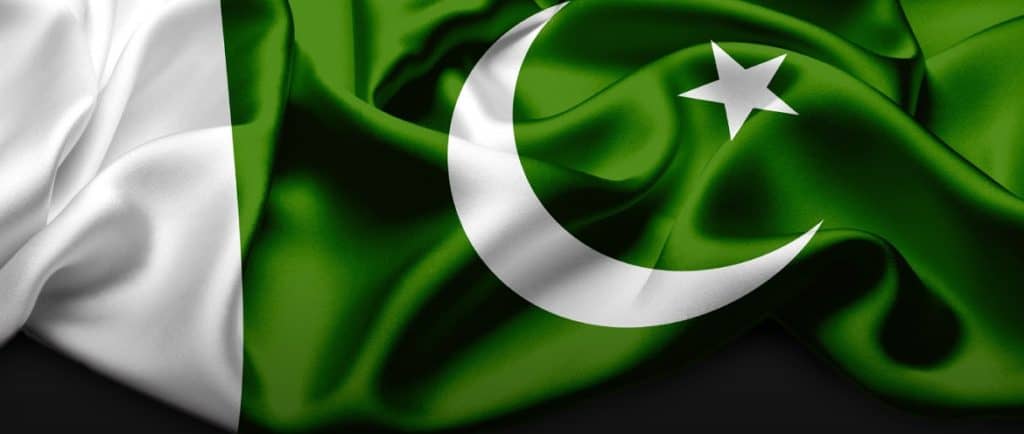By Mehmood Hussain, PhD
Pakistan is celebrating Pakistan Day. On 23rd March 1940, the All India Muslim League adopted the historic and most celebrated resolution to set the stage for an independent and sovereign state. The resolution was later termed as “Pakistan Resolution”.

The world witnessed that after seven years sacrifices and hard work paid off and Muslims of the Subcontinent were successful to attain a new state namely Pakistan. Indeed it was a miracle and historic achievement for the Muslims of Pakistan and they are flexing their muscles to make it a true welfare state. But what has happened in the past 75 years is the topic of this short brief as Pakistan is hosting a historic OIC conference of Foreign Ministers on the Occasion of Pakistan Day. This brief is developed into the following sequence. First, the writer has tried his best to draw attention to achievements followed by failures.
The idea of modern nation-states rests upon the pillars of security, democracy, equality, justice, rule of law, social and economic security. When we make an impartial and neutral assessment of achievements that Pakistan carries in its baggage, except state security and defense, nothing is much important to count. Pakistan was born as an insecure and defensive state facing explicit territorial threats from India and issues on the accession of Muslim majority states i.e. Kashmir, Hyderabad, and Junagadh. India forcefully acceded Hyderabad and Junagadh, while contestation is still prevailing on the matter of Kashmir. Pakistan also faced the influx of refugees, lack of administrative infrastructure, and distribution of assets. Somehow, Pakistan managed to run the affairs of the newly formed state and with due time improved its administrative and bureaucratic infrastructure. India which never accepted Pakistan fought two full-fledged wars and limited conflict in Kargil in 1999. The war of 1965 and disintegration of East Pakistan in 1971 taught a harsh lesson to Pakistani leadership that military asymmetry is incapable to ensure the balance of power in South Asia, thereby persuading the military and political leadership to develop nuclear deterrence. Once Pakistan achieved the minimum nuclear deterrence, it ensured the territorial integrity and sovereignty of the state terming it a stellar achievement.
Failures: The list of failures is much longer and expanding over the years.
Nationalism vs Regionalism and Sub-nationalism: The first failure of Pakistan is that the state has failed to develop a unique nationalism based on the true idea and spirit of Pakistan. The country became an independent state on the idea of the Two-Nation theory, but the idea has never materialized. Soon after independence, regionalism and sub-nationalism were propagated across the country based on ethnicity, language, culture, and population. When the constituent assembly adopted Urdu as a national language, a sense of resentment and opposition emerged in East Pakistan, home of the Bengali-speaking population. The lack of consensus and acceptance of Bengali as a national language contributed to the dismemberment of Pakistan.
Strong Bureaucracy vs Weak State: Pakistan inherited the British bureaucratic system which was designed and developed to control the populations of British colonies. In British India, bureaucracy was empowered with control of land, resources, and the use of brutal force to control the rebellion against the British Raj. With almost no change, the same bureaucratic structure has been adopted in Pakistan which is depriving the masses of fundamental rights and protecting their personal and institutional privileges. Despite much-touted reforms in bureaucracy, Pakistan and Pakistanis remain at the mercy of these bureaucrats.
Weak Economy vs Strong Security: The third failure of the Pakistani state is its fragile economy. Today the country is on foreign aid and inward debt ventilator. The state of the economy is poor with massive imports and the inability to improve the share of exports. The country has failed to modernize its industrial and agricultural base creating an economic nightmare for the masses. High inflation and debt servicing have been consuming a major share of the revenue leaving scanty resources for infrastructure and social development. The poor economic policies and corruption in public sector ranks have aggravated the state of the economy leaving no room for Pakistan to play in international politics. Today’s world is occupied with economic interests and states are trying to get the maximum pie of a cake, but Pakistan has nothing to offer. Contrary, India has become a major economic power attracting massive investment and blocking the political criticism on its policy to control Kashmir and minorities.
Weak Democracy and Democratic Accountability: Political turmoil and instability remain one of the major failures of Pakistan. For more than half of its existence, Pakistan has been governed by the military which has blocked and destroyed democracy and democratic maturity. Besides military rule, the political junta is equally contributing to democratic erosion and political instability. Political parties are not democratic in their true sense and spirit. Only a few families are controlling the political system. For instance, PMLN and PPP are governed and controlled by the Sharif and Bhutto family, and there is no room for the ordinary political worker to achieve the rank of the premiership. Now Maryam Nawaz Sharif and Bilawal Bhutto Zardari are trained to become the next heads of state. The non-democratic nature of political parties is yet another challenge to political stability and democracy in Pakistan.
The analysis exposed that the state of affairs is not encouraging and raising serious apprehensions over the long-term stability of Pakistan. 23rd March reminds us to rethink our handling of Pakistan. It is a day when we can dig deep to understand the idea of Pakistan that why millions of Muslims sacrificed their lives, dignity, honor, and properties for Pakistan, and what we are doing for Pakistan. In what ways we have contributed to the stability or instability of Pakistan. The world is rapidly changing and if we fail to adopt this change, we will be losing our freedom and independence.
Author: Mehmood Hussain (PhD and Coordinator of the Department of International Relation, University of Azad Jammu and Kashmir, Muzaffarabad Pakistan).
(The views and opinions expressed in this article are only of the authors and do not necessarily reflect the views, opinion or position of World Geostrategic Insights).







